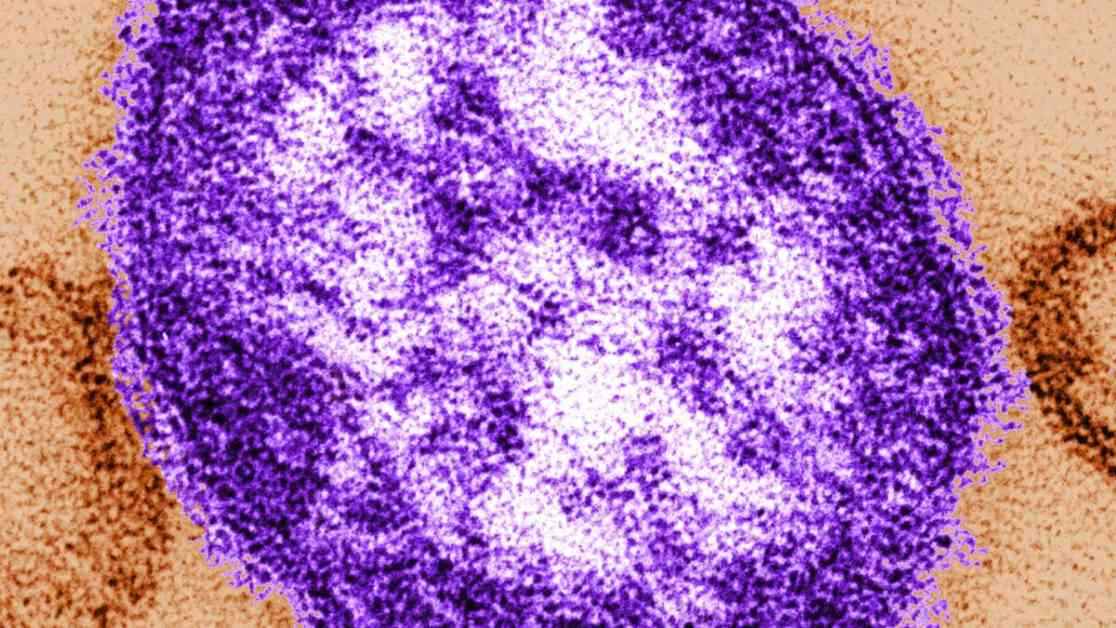In the midst of a concerning surge in measles cases across the nation, public health officials have confirmed a case of the highly contagious virus at Los Angeles International Airport (LAX). The incident unfolded when a non-Los Angeles resident, unknowingly infectious with the disease, arrived at Terminal B via a Korean Air flight on Feb. 19. The Los Angeles County Department of Public Health disclosed that the traveler in question was an infant returning home to Orange County after international travel, as reported by the Orange County Health Care Agency.
Measles, a viral infection transmitted through the air and droplets, poses significant health risks, including potential fatality. According to the John Hopkins Bloomberg School of Public Health, the virus can spread through respiratory droplets when an infected individual breathes, coughs, or sneezes, as well as by touching contaminated surfaces. The Centers for Disease Control (CDC) emphasized the virus’s alarming contagiousness, noting that one can contract measles merely by occupying a space where an infected person has been, up to two hours after the infected individual has vacated the area.
California has reported three measles cases as of Feb. 22, contributing to the nationwide tally of 164 cases across states like Alaska, Georgia, Kentucky, New Jersey, New Mexico, New York, Rhode Island, and Texas. The most significant concentration of cases and the first U.S. fatality since 2015, involving an unvaccinated child, have emerged in rural west Texas. Experts attribute the recent surge in measles cases to a global decline in vaccination rates, a trend exacerbated by the COVID-19 pandemic. The infection’s high transmissibility necessitates a vaccination rate of at least 95% within a community to effectively curb its spread, a threshold that remains unmet in most U.S. states, particularly among kindergarten-age children.
Unraveling the Measles Exposure at LAX
The potential exposure to measles at LAX poses a grave threat to travelers and airport staff who were present at Terminal B on Feb. 19 between 1 and 4 p.m. The affected terminal accommodates flights for prominent airlines such as Air China, Air France, All Nippon Airways, British Airways, and Cathay Pacific Airways. Health officials have identified specific seats on the Korean Airline flight as additional sites of potential exposure, urging passengers to remain vigilant for symptoms of the virus.
“Meesles is a serious respiratory disease that spreads easily through the air and on surfaces, particularly among people who are not already protected from it,” remarked Muntu Davis, the Los Angeles County Health Officer. To safeguard against the virus, individuals are advised to verify their immunization status and promptly consult their healthcare provider if they suspect exposure. Pregnant individuals, those with compromised immune systems, and unvaccinated individuals are particularly vulnerable and should seek medical guidance without delay.
Should symptoms manifest, individuals are encouraged to self-isolate and notify healthcare providers prior to seeking medical attention. The incubation period for measles spans seven to 21 days post-exposure, during which infected individuals may unknowingly transmit the virus. Notably, individuals who remain asymptomatic for over 21 days following exposure are considered out of harm’s way.
Recognizing and Mitigating Measles Symptoms
Symptoms of measles typically surface between seven and 14 days post-exposure, encompassing high fever, cough, runny nose, red and watery eyes, and a telltale rash. The rash, emerging between seven and 18 days post-exposure, initially appears on the face and upper neck before spreading to the extremities over a three-day period. Measles-associated complications can be severe, ranging from blindness and encephalitis to pneumonia and, in tragic cases, death, underscoring the gravity of the infection, particularly among young children and vulnerable adults.
As an essential preventive measure, health officials advocate for the measles, mumps, and rubella (MMR) vaccine, which offers robust protection against the virus. Administered in two doses, the MMR vaccine boasts a staggering 97% efficacy rate in thwarting measles, with the initial dose recommended between ages 12 and 15 months and a subsequent booster shot between ages 4 and 6 years. Vaccination remains the most effective defense against measles, underscoring the critical role of immunization in stemming the virus’s spread.
In conclusion, the recent measles exposure at LAX underscores the pressing need for heightened vigilance and adherence to vaccination protocols to safeguard public health and mitigate the risk of contagious infections. Stay informed, stay protected, and prioritize your health and well-being in the face of evolving public health challenges.


